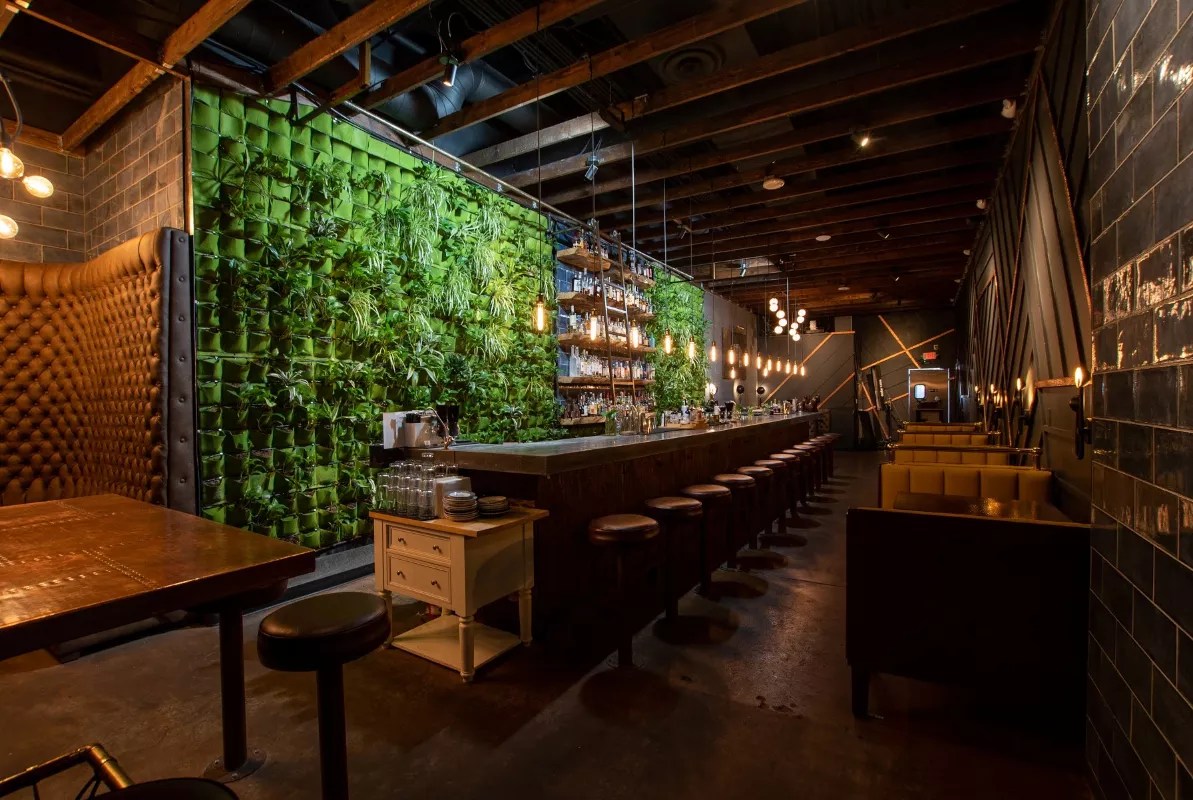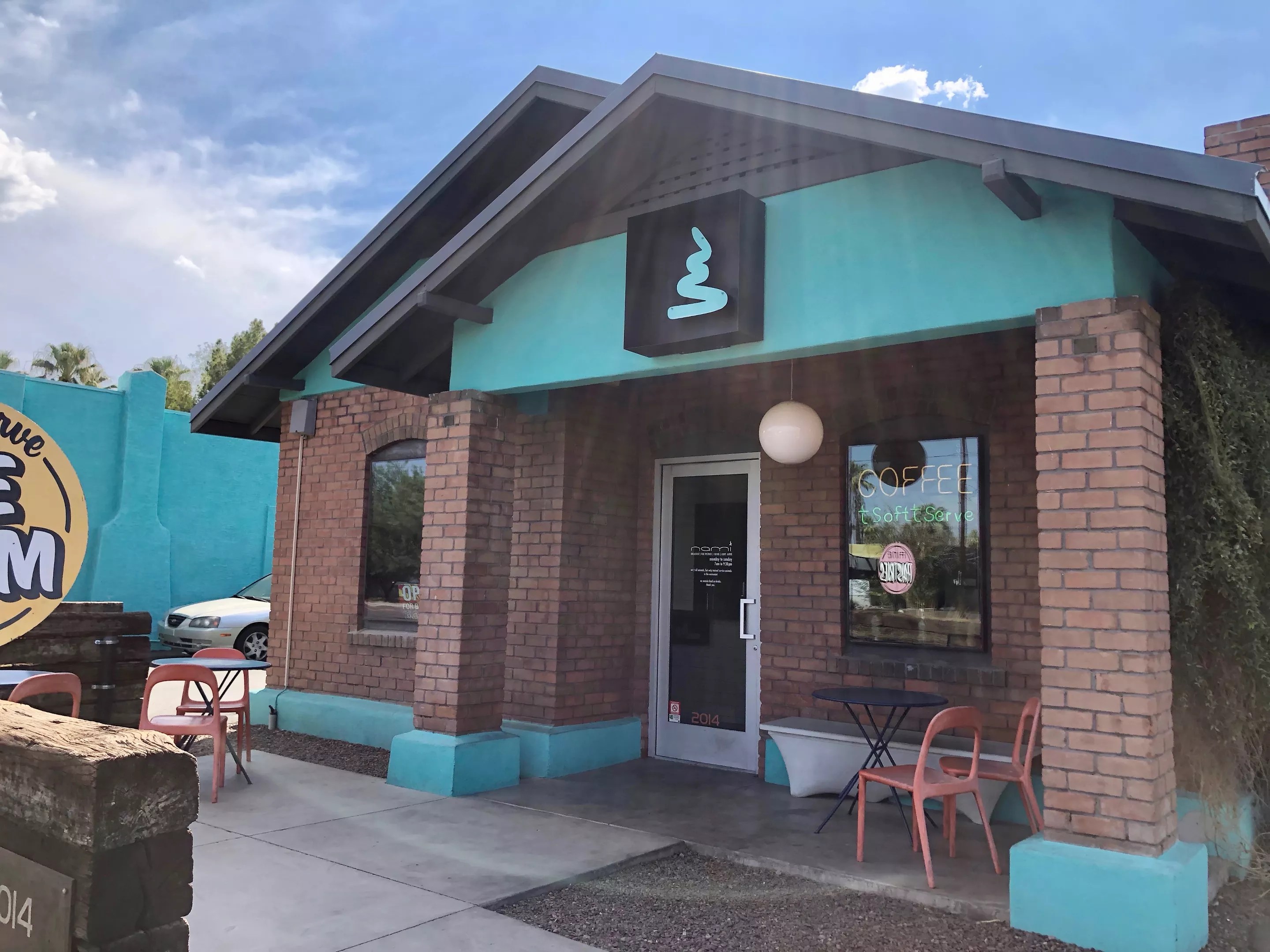
Jackie Mercandetti Photo

Audio By Carbonatix
One table.
That’s the extent of the seating Javier Perez, who owns The Bread and Honey House near Phoenix Sky Harbor International Airport, can currently offer customers in his petite dining room while also maintaining proper social distancing.
The dine-in capacity for Arizona restaurants and bars is currently limited to 50 percent, per an executive order issued many months ago by Governor Doug Ducey’s. That affects everyone, of course, but especially restaurants and bars that were already quite small to begin with.
Perez’s is one such business. Under normal circumstances, The Bread and Honey House dining room has a capacity of only 16 people. So, technically Perez could have eight diners inside (but again, one table). “But it’s so small that I don’t think putting in four more people inside would increase our revenue to afford another full-time person,” he says, adding that he only wants to hire an employee for whom he can offer adequate hours.
He’s opened the patio, which normally seats and 30 and under COVID restrictions can accommodate about 16 seats outside. But the patio and takeout alone won’t cut it. The Bread and Honey House has, through a partnership with Local First Arizona, started catering to homeless shelters. Perez says the revenue has helped his business, easing the pain of paying bills.
Alicia Baldwin, who now owns south Scottsdale’s TT Roadhouse after former owner Richard Skoog died in 2020, says the bar’s cap is 50 people under normal circumstances. “We’re just a small space, to begin with,” Baldwin says.
Although open for full service, TT Roadhouse has removed seats for proper social distancing and must stop people from coming in after capacity reaches 25 people.
“That’s hard for a small business in general when you have a 50-person capacity on a normal day. And then now you’re cut in half and you’re turning people away,” Baldwin says. “It’s like a triple whammy.” She says she plans to look into more outdoor space to make up for declining revenues.
Pigtails Downtown was open for about six weeks before the pandemic arrived in Phoenix. Kyla Hein, beverage director at Pigtails, which also has a location at Desert Ridge Marketplace, says that with the roller coaster ride of reopening guidelines and regulations, both locations operated as just bottle shops for a while.

Pigtails Downtown recently had a three-hour wait.
Juntos Media
Both locations now welcome customers for indoor drinking while also offering takeout cocktails. But it’s frustrating for both staff and customers.
“People come in, and it’s a Wednesday night, and we’re full, and they don’t understand why they can’t come in,” she says.
On a recent Friday, the bar had a three-hour wait, leaving some customers angry. Hein says that many customers, in her experience, don’t know about new, semi-permanent regulations regarding reduced capacity.
But overall, Hein says she believes the pandemic-related regulations have unfairly left a large burden on bars and restaurants.
“You go to the grocery store and no one’s social distancing. You go up to the produce, and everybody’s touching the same apples, picking them up, putting them back down,” she says. “I think people catch germs in grocery stores more than they do in restaurants and bars.”

Nami never did reopen its dining room.
Lauren Cusimano
Other establishments, like Damon Brasch’s small vegan sweets shop Nami, remain closed for dine-in service – patio and all. When fully operational, the shop seats about 50 people.
Brasch says the pandemic has “obliterated” his business.
At first, he opted to shut the restaurant down for a couple of months to be as safe as possible. Realizing Nami wouldn’t have a shot at long-term survival without reopening, Brasch made the decision to do takeout only.
He wishes there were more of a safety net for those who, out of COVID-related concern, do not wish to reopen fully. He says that although his business has lost a lot of revenue, his number one priority is keeping his employees safe.
“We’re in job-saving mode,” Brasch says. “Not in money-making mode.”